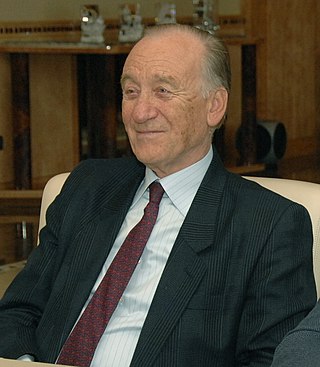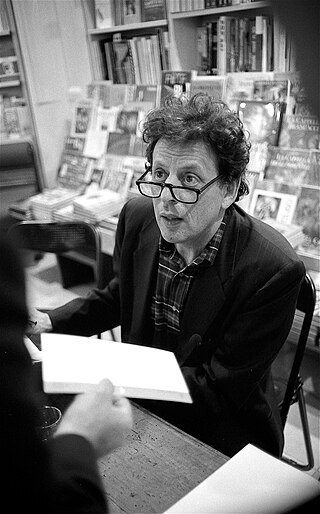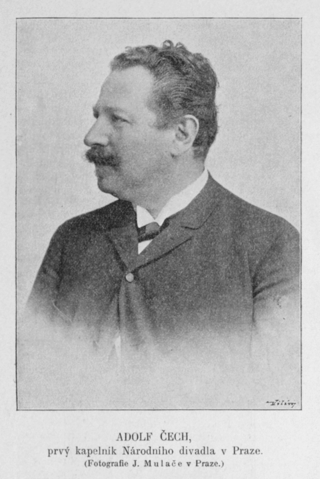
Eugene Onegin, Op. 24, is an opera in 3 acts, composed by Pyotr Ilyich Tchaikovsky. The libretto, organised by the composer himself, very closely follows certain passages in Alexander Pushkin's 1825–1832 novel in verse, retaining much of his poetry. Tchaikovsky's friend Konstantin Shilovsky contributed M. Triquet's verses in Act 2, Scene 1, while Tchaikovsky himself arranged the text for Lensky's arioso in Act 1, Scene 1, and almost all of Prince Gremin's aria in Act 3, Scene 1.

Rodion Konstantinovich Shchedrin is a Soviet and Russian composer and pianist, winner of USSR State Prize (1972), the Lenin Prize (1984), and the State Prize of the Russian Federation (1992), and is a former member of the Inter-regional Deputies Group (1989–1991). He is also a citizen of Lithuania and Spain.

Duke Bluebeard's Castle is a one-act Symbolist opera by composer Béla Bartók to a Hungarian libretto by his friend and poet Béla Balázs. Based on the French folk legend, or conte populaire, as told by Charles Perrault, it lasts about an hour and deploys just two singing characters: Bluebeard and his newest wife Judith ; the two have just eloped and she is coming home to his castle for the first time.

Dialogues des Carmélites, FP 159, is an opera in three acts, divided into twelve scenes with linking orchestral interludes, with music and libretto by Francis Poulenc, completed in 1956. Poulenc wrote the libretto for his second opera after the work of the same name by Georges Bernanos. This is a fictionalized version of the story of the Martyrs of Compiègne, Carmelite nuns who, in 1794 during the closing days of the Reign of Terror during the French Revolution, were guillotined in Paris for refusing to renounce their vocation.

Jan Peerce was an American operatic tenor. Peerce was an accomplished performer on the operatic and Broadway concert stages, in solo recitals, and as a recording artist. He is the father of film director Larry Peerce.

The Voyage is an opera in three acts by the American composer Philip Glass. The English/Latin/Spanish libretto was written by David Henry Hwang.
The Center Theatre was a theater located at 1230 Sixth Avenue, the southeast corner of West 49th Street in Rockefeller Center in New York City. Seating 3,500, it was originally designed as a movie palace in 1932 and later achieved fame as a showcase for live musical ice-skating spectacles. It was demolished in 1954, the only building in the original Rockefeller Center complex to have been torn down.

Robert Weede was an American operatic baritone.
The American Opera Company was the name of six different opera companies active in the United States. The first company was founded in New York City in February, 1886, but lasted only one season. The second company grew out of the Eastman School of Music in Rochester, New York, and was active from 1924 up until 1930, when it went bankrupt following the Wall Street Crash of 1929. The third company, located in Trenton, New Jersey, was active in 1937 only. The fourth company was actively performing in Philadelphia from 1946 through 1950.
Mark Grey is an American classical music composer, sound designer and sound engineer.

Cristoforo Colombo is an opera in four acts and an epilogue by Alberto Franchetti to an Italian libretto by Luigi Illica. It was written in 1892 to commemorate the 400th anniversary of Christopher Columbus' arrival in America.

Eugene Zador was a Hungarian and American composer.

Josef Franz, Archduke of Austria, Prince of Hungary, was the eldest son of Archduke Joseph August of Austria and Princess Auguste Maria of Bavaria. As his father was the last Palatine of Hungary and was briefly considered a possible King of Hungary in 1919–1920, Josef Franz was a potential crown prince of Hungary.

The Maiden in the Tower, JS 101, is an opera in one act—comprising an overture and eight scenes—written in 1896 by the Finnish composer Jean Sibelius. The piece was a collaboration with the Finnish author Rafael Hertzberg, the Swedish-language libretto of whom tells a "simple tale of chivalry" that may nonetheless have had allegorical ambitions: the Bailiff abducts and imprisons the Maiden ; although she endures hardship, she remains true to herself and is freed subsequently by her Lover and the Chatelaine of the castle.
Martha Lipton was an American operatic mezzo-soprano.
Der Rosenkavalier is a 1926 Austrian silent film of the opera of the same name by Richard Strauss (music) and Hugo von Hofmannsthal (libretto). Directed by Robert Wiene, it premiered on 10 January 1926 at the Dresden Semperoper, which had also hosted the actual opera's premiere 15 years earlier. Hofmannsthal considerably changed the storyline for the film version and Strauss' score included music not only from the opera but also sections of his Couperin Suite and a march for the Field Marshal, who appears in this version.

Adolf Čech was a Czech conductor, who premiered a number of significant works by Antonín Dvořák, Bedřich Smetana, Zdeněk Fibich and other Czech composers. He also led the first performances outside Russia of two operas by Pyotr Ilyich Tchaikovsky and the Czech premieres of seven operettas by Jacques Offenbach. He was also a bass singer and a translator of opera librettos.
Kenneth Kiesler is an American symphony orchestra and opera conductor and mentor to conductors. Kiesler is conductor laureate of the Illinois Symphony Orchestra where he was music director from 1980 to 2000 and founder and director of the Conductors Retreat at Medomak. In 2014, Kiesler was nominated for a Grammy Award for his recording of Darius Milhaud's opera L'Orestie d'Eschyle. He is director of orchestras and professor of conducting at the University of Michigan.
Josepha Chekova, sometimes given as Josefa Chekova and also known by her married name Josepha Domansky, was a Czech-American soprano. She began her career in vaudeville as early as 1924, and was a contracted singer with WRNY radio in 1926-1927. After appearing in a musical revue in Chicago, she won a vocal competition in 1927 which provided her with a scholarship to train as an opera singer at the Bel Canto Studio, Inc. of New York. She later studied singing further in New York City with Estelle Liebling. She made her opera debut at the Prague State Opera prior to becoming a leading soprano with the New York Opera Company in 1933. She was a leading soprano at Radio City Music Hall in 1930s, and toured with the San Carlo Opera Company in 1935-1936. She worked regularly with the Steel Pier Opera Company in Atlantic City from the mid 1930s into the early 1940s, and also appeared as a guest artist with opera companies in Washington D.C., Cincinnati, and Chicago. From 1940-1942 she toured with Armand Bagarozy's Columbia Opera Company, and in 1948 she gave a concert tour of Czechoslovakia.












